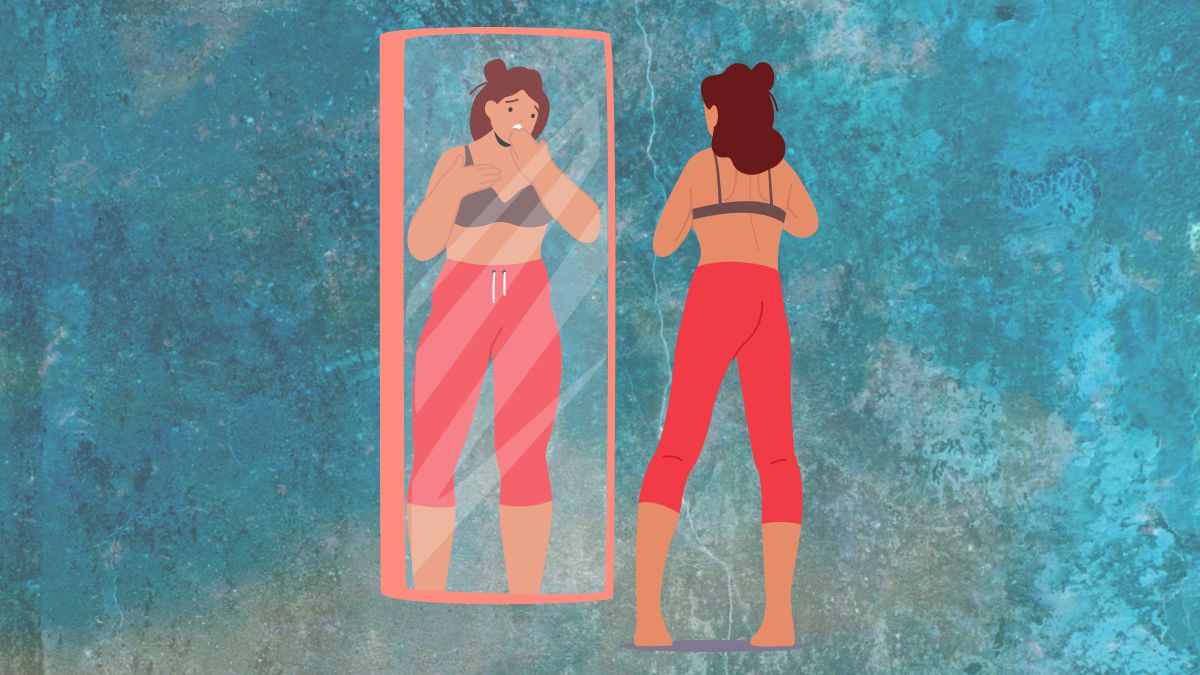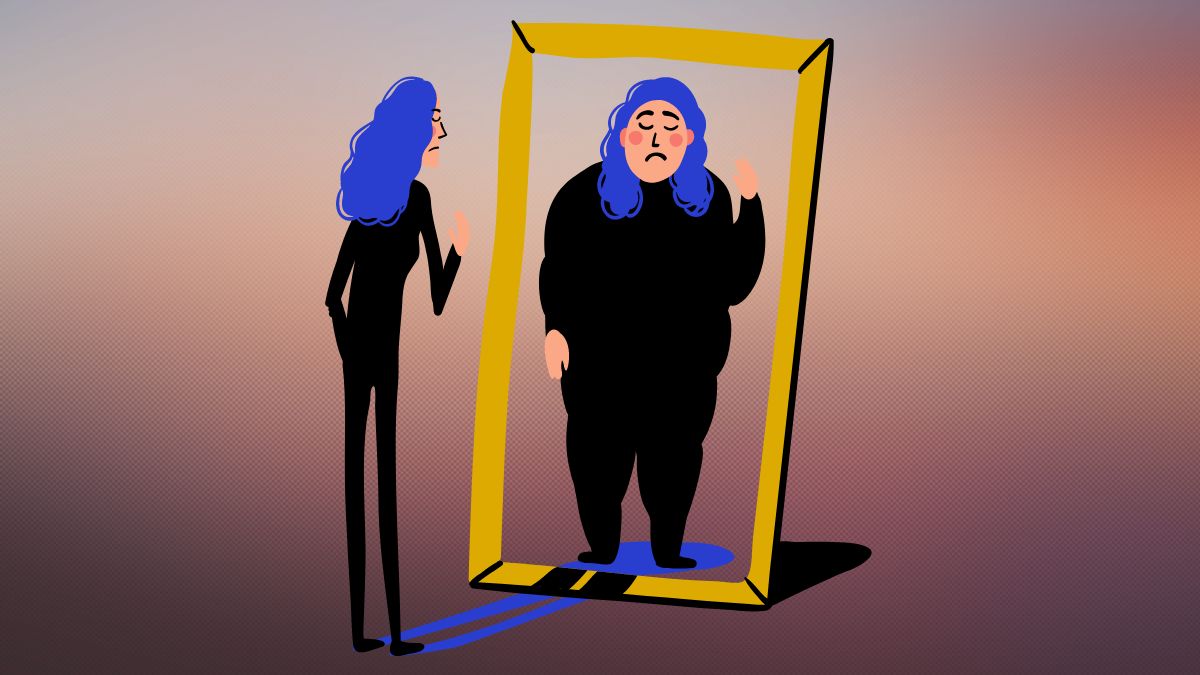
Karan Johar has time and again opened up about his mental health struggles, in particular his body image issues. In a recent interview with Faye D’Souza, he admitted to having body dysmorphia.
“I have body dysmorphia, I am very awkward getting into a pool. I don’t know how to do it without feeling pathetic. I’ve tried very hard to overcome it,” said Johar.
Table of Content:-
Talking to the Onlymyhealth team, Charu Prabhakar, RCI Accredited Clinical Psychologist, Lissun, Mental Health and Emotional Wellness Platform highlighted the obsessive and distressful nature of body dysmorphia, also known as Body Dysmorphic Disorder (BDD).

What Is Body Dysmorphia?
Prabhakar explained, “Body dysmorphia goes far beyond just feeling insecure about a part of your body. It's a mental health condition that causes people to be constantly worried about flaws in their appearance. These flaws may seem minor or invisible to others, but for someone with BDD, they can be a source of immense distress and can significantly impact daily life.”
This can be seen in Johar's words, “No matter what the success you achieve, no matter who you think you are in your own head, I’m always in oversized clothes. Even if I lose the weight, and I try very hard, I’m always battling with it, but I’m always feeling I’m fat. So I don’t want you to see any part of my body.”
Prabhakar said that some common signs of body dysmorphia are:
- Excessive checking of their appearance
- Frequent grooming routines
- Spending excessive money on fixing perceived flaws
- Doctor shopping
- Seeking reassurance
- Avoiding social situations
Opening up to D’Souza, Johar shared, “Nothing has changed since I was eight. I self-body shame myself all the time. Even in situations of intimacy, I need to put the lights out. I’ve been to therapy for it. All these issues…all fester and create mental health issues. I even took medication after suffering from a panic attack.”
Also Read: Mental Health Matters: Does Social Media Normalise Photoshop and Influence Body Dysmorphia?

Coping With Body Dysmorphia
A study published in the Shanghai Archives of Psychiatry stated that more than 30% of people dealing with BDD have tried to commit suicide. That is why it is crucial to recognise this disorder and apply strategies to cope with it effectively. Prabhakar listed a few ways:
- Limit Exposure To Triggering Social Media: Platforms can be filled with unrealistic beauty standards. Reduce time spent on content that fuels body dissatisfaction.
- Seek Out Body-Positive Content And Diverse Beauty Representations: Actively search for content that promotes healthy body image and showcases a wider range of beauty standards.
- Connect With Supportive Individuals: Talk to friends, family, or mental health professionals for guidance and develop strategies to build a more positive self-image. This support can help lessen the impact of social media on body dysmorphia.
- Practice Self-Care And Mindfulness: Engage in activities that promote well-being, foster self-acceptance, and cultivate a present-moment awareness. This can lead to a healthier body image and relationship with your appearance.
Also Read: Rising Cases Of Teen Suicide: Expert Explains Impact Of Trolling And Online Negativity
It is a brave move on Karan Johar’s part to admit that he has body dysmorphia and share his struggle with mental health issues, opening up a platform to normalise BDD and for others to feel less lonely and know more about this common mental health condition. Prabhakar concluded that if you or someone you know suspects having BDD, it is crucial to consult a healthcare professional promptly.
Also watch this video
How we keep this article up to date:
We work with experts and keep a close eye on the latest in health and wellness. Whenever there is a new research or helpful information, we update our articles with accurate and useful advice.
Current Version